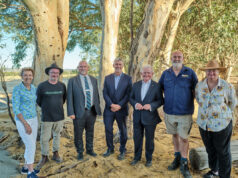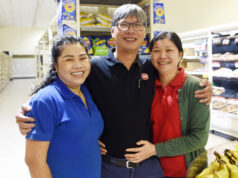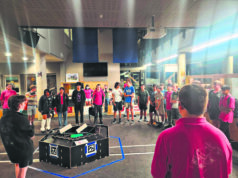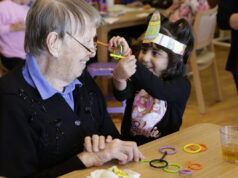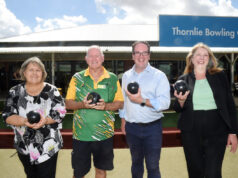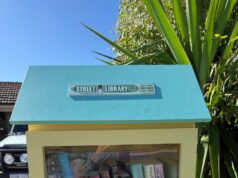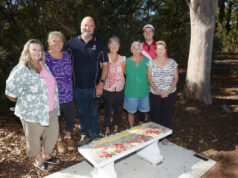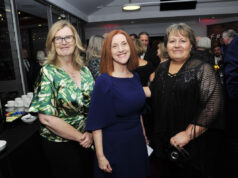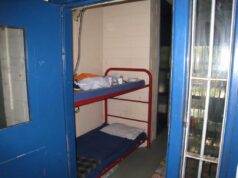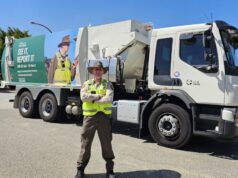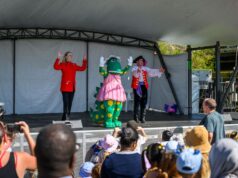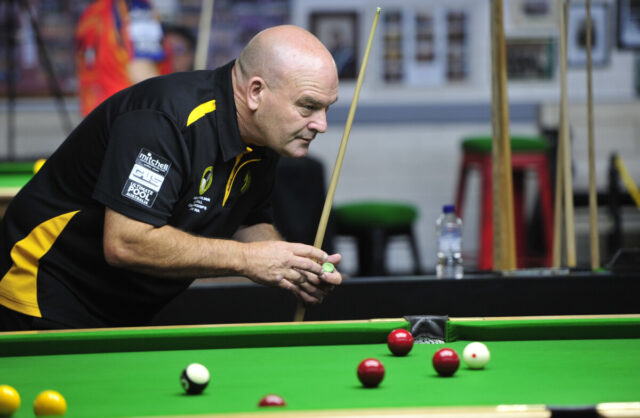
Over 400 competitors from across the country descended on Queens Park last week, with the West Australian Eight Ball Federation (WAEBF) hosting this year’s Australian Eight Ball Federation (AEBF) National Championship.
The prestigious championship featured various categories, including team and individual competitions in open and masters grades, women’s grades, Over 50s, Over 60s, Under 23s, doubles grades, and an Indigenous All Stars Challenge.
President of WAEBF Terry Green said it was wonderful to host the championship again for the first time in 11 years and believes eight-ball is a sport that all ages and abilities can enjoy, and the competition’s turnout is reflective of that.
“We have team members representing WA from as far north as Port Hedland, as far south as possible, and from the east, as well as the metropolitan area,” Mr Green said.
“We also have members ranging from as young as seven to as old as 90-odd, making it one of the few games in the sporting sense where the young can compete against the old.
“It’s a sport that isn’t restricted by physical ability or other factors; rather, it’s something you can enjoy throughout your entire life.”
As president of the WAEBF for nearly ten years, Mr Green said he is proud to have overseen the sport’s significant growth in reputation during that time.
“It used to be referred to as a pub sport, but it isn’t anymore. Our promotion is much wider than that,” he said.
Among the highlights of the championship, Western Australia triumphed in the Australian Teams Masters Grade grand final, defeating South Australia in the race to 15.
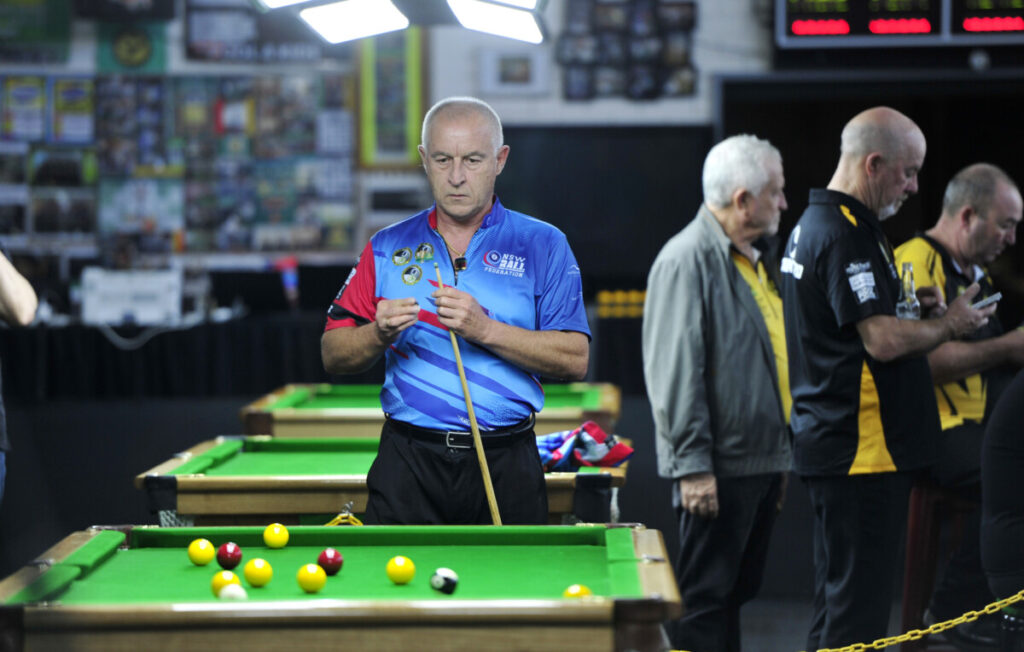
In the individual events, WA’s Alan Brown triumphed over fellow West Aussie Sonny Lister in a gripping Masters Singles grand final (8-6), Ben Foster defeated NSW’s and AEBF president Travis Crawley in the Open Grade championship, and Victoria’s Kolbe Poole prevailed over ACT’s Nicole Welsh in the Women’s Singles grade.
WA’s Sue Bussanich secured the Women’s Over 50 Grade championship (8-6), while Alex Kingsbury narrowly lost the Under 23 Grade grand final to Victoria’s Toby Clack (6-8).
Tournament director of the 2024 championship and president of the Australian Eight Ball Federation (AEBF), the governing body for eight-ball, Travis Crawley from Sydney, praised the WAEBF facility in Perth, claiming it to be the best in Australia.
“With 20 tables, the Western Australian Eight Ball Federation’s home venue in Queens Park is certainly the envy of all other states and territories,” Mr Crawley said.
“Usually, when you come to a national championship, it’s held at some conference centre or something like that, but coming here, it’s just like coming home.”
Supporting the event through a $50,000 state government grant, WA Sports Minister David Templeman visited the championship during the week, describing it as a fantastic opportunity for the state’s best talent to showcase their skills while he also fancies himself a decent player.
“Games like eight-ball, pool and snooker are important social sports, and I’m pleased the Cook Government continues to support this sport in WA,” Mr Templeman said.
“I have played pool for many years, starting off as a lad in the late 1970s and ’80s, where I’d play on my grandparents’ pool table in their lounge room in Narrogin every school holidays.
[while visiting the championship] I showed my skills in the timed eight-ball event, where I potted all eight balls in 28 seconds. Apparently, that score would have put me on the Leaderboard,” he quipped.
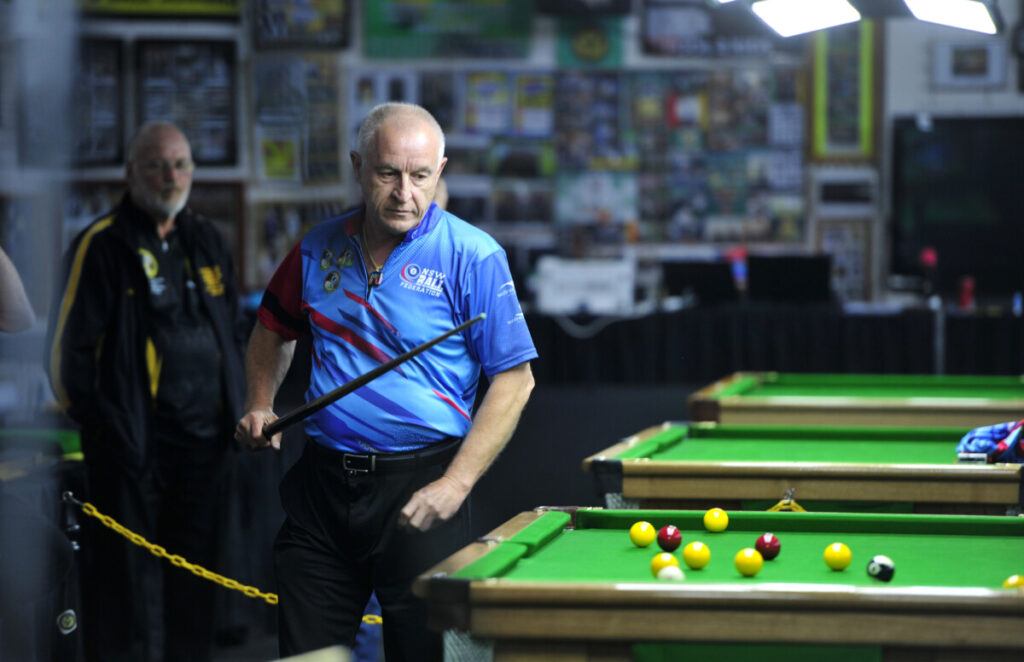
President of the AEBF, Travis Crawley, believes that with growing recognition and increased television coverage at both national and global levels, especially in Europe, it is not too far-fetched to hope for eight-ball’s inclusion in the Olympics one day.
“There’s a lot of cue sports disciplines around the world, but we’ve sort of all come together to push for cue sports to gain global recognition in the Olympics. We just need to put our ducks in a row and get everything right,’ Mr Crawley said.
“We’re open to any cue sport being accepted; we’d be fortunate if it were ours. However, our primary goal is to get cue sports recognised, and we do have a pathway to the Olympic Committee since we’re one of the sports under consideration.”


